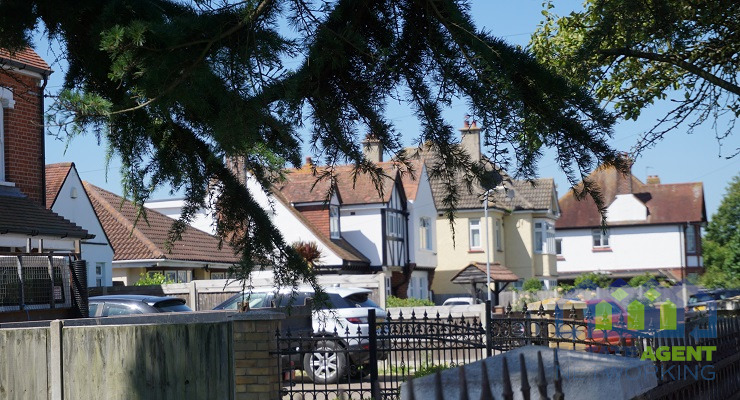How much less can you expect if you sell your house for cash in 2024
When selling a house in the UK, opting for a cash sale often means accepting a lower price compared to a traditional open market sale via an estate agent. This reduction is down to a few factors including convenience and the speed of the transaction, which can be highly attractive to sellers looking to cash out on an undesirable property that may take many months to sell on the open market.
In 2024, the property market continues to adapt to higher interest rates which has led to a slow down in mortgage purchases and an increase in cash transactions so understanding the implications of a cash sale is crucial for homeowners considering this option.
Here, we explore three main routes for a cash sale: selling on the open market to a cash buyer, through a property auction, and to a house buying company. Each method has its own benefits and drawbacks, as well as varying impacts on the final sale price.
1. Selling on the Open Market to a Cash Buyer
Selling on the open market to a cash buyer involves listing your property as usual, but targeting buyers who can complete the purchase without the need for mortgage financing. These buyers often include investors and individuals with substantial liquid assets.
Potential Sale Price – between 85% to 95%
Typically, you can expect to receive between 85% to 95% of the full market value from an open market cash buyer. The discount compensates the buyer for the liquidity they provide and the speed of the transaction and investors are more willing to buy properties that may not be in tip top condition so they can add value at a later date but for this they will be looking to buy at a reduced price.
Positives
• Speed: Transactions can complete significantly faster as there is no need for mortgage approval which can take several months.
• Certainty: Fewer risks of the sale falling through due to mortgages not being approved.
• Market Exposure: Your property still gets full market exposure, potentially attracting multiple offers.
Negatives
• Lower Price: Expect a discount from the full market value.
• Limited Buyers: The pool of cash buyers is smaller than the general market (it is around a third of the whole market).
• No Guarantees: As these cash buyers will be individuals they still could get cold feet and pull out of the sale, especially if there is a shift in the market or their personal circumstances change.
2. Selling Through a Property Auction
Property auctions offer a platform where properties are sold to the highest bidder, most auctions these days are conducted online so can attract a large audience. Auctions attract a mix of cash buyers, including investors and developers looking for their next ‘buy to let’ or ‘flip’.
Potential Sale Price – between 75% to 90%
Auction sales often yield between 75% to 90% of the full market value. The competitive bidding process can sometimes push prices higher, but there are no guarantees. You can set a reserve price which means that if your house doesn’t reach a certain amount then the property won’t sell but it is a delicate balance since a high reserve might put buyers off from bidding.
Positives
• Fast Sale: Completion usually occurs within 28 days of the auction.
• Competitive Bidding: The auction environment can drive up the sale price.
• Certainty: Once the hammer falls, the sale is legally binding.
Negatives
• Lower Price: Auctions often attract buyers looking for a bargain.
• Fees: Some auction houses charge fees, always check with the auction house in advance.
• Uncertainty: There’s no guarantee your property will sell, or at a desirable price.
3. Selling to a House Buying Company
House buying companies offer quick cash sales, typically able to deliver completion within a few weeks. These companies purchase properties directly from homeowners and are the fastest and most certain cash sale method but this does come at a higher cost.
Potential Sale Price – around 80%
How much below market value do house buying companies offer? These companies usually offer around 80% of the full market value. The lower offer reflects the quick, hassle-free service they provide. This might seem like a low amount but they make their money by reselling the properties that they buy on the open market so after the costs of purchasing and selling a property along with other business expenses buying at 80% is the only way that they can turn a profit.
Positives
• Speed: Sales can complete in as little as 14 days.
• Convenience: Minimal effort required from the seller; the company handles most of the process.
• Certainty: High likelihood of sale, with few risks of complications.
Negatives
• Discount: The biggest reduction from full market value among the three options.
• Reputation: The quick sale industry as a whole doesn’t have the best reputation so you need to shop around and do careful due diligence to find a reputable company to buy your house.
Summary
Selling your house for cash in 2024 can offer significant advantages in terms of speed and convenience. However, it is important to be aware of the potential financial trade-offs.
On the open market, you can expect to receive 85% to 95% of the full market value, offering a good balance of price and speed. Auctions might bring in 75% to 90% of
the value, providing a quick sale but with more uncertainty and fees. House buying companies offer the fastest and most certain sale, but at the cost of receiving 80% of your property’s full market value.
Each option has its merits and pitfalls, so it’s essential to carefully consider your priorities and circumstances before deciding on the best route for your cash sale.









